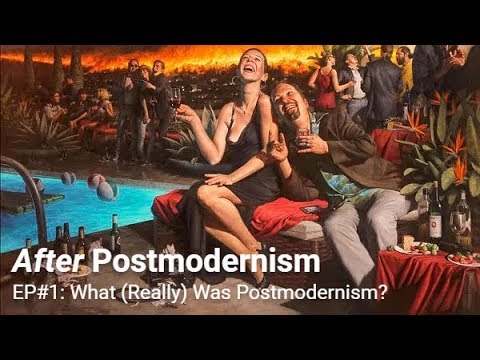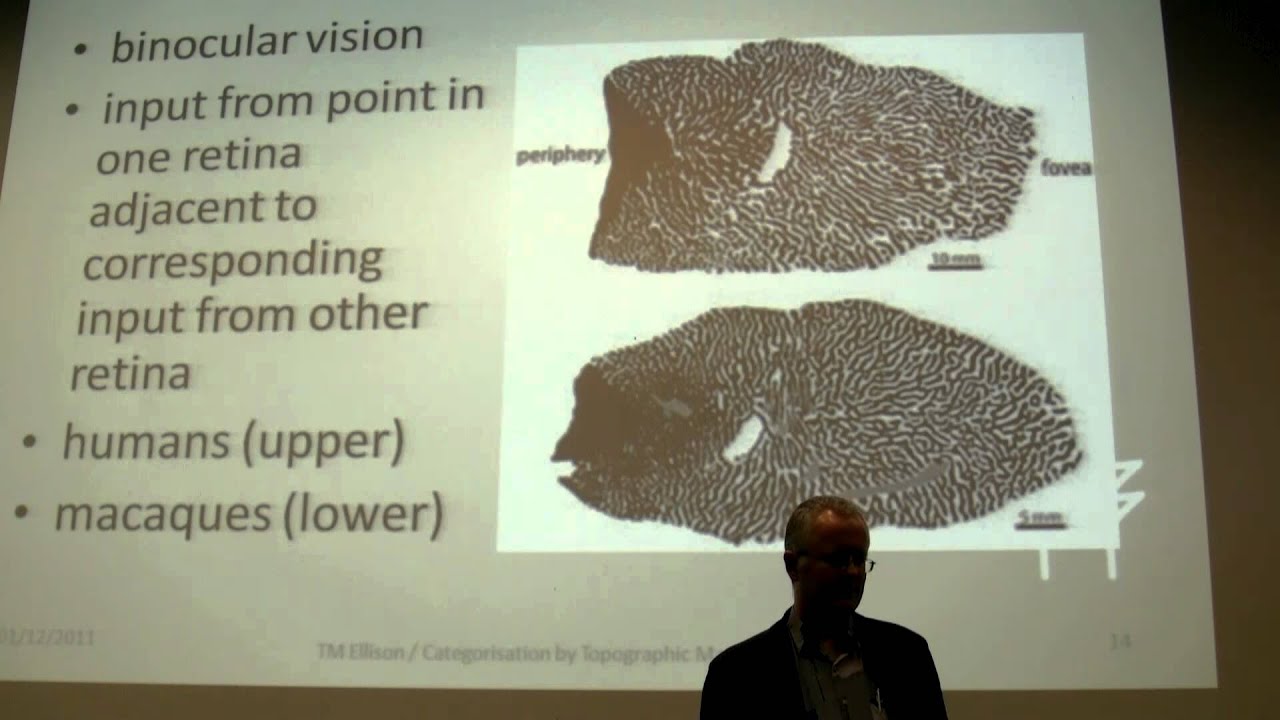Brendan Graham Dempsey
Postmodernism as a period is over, even if the critiques are piling up from all corners, left and right, from Jordan Peterson to Slavoj Zizek. Meanwhile, the world has diverged sharply from its neoliberal, globalist trajectory. So where are we headed now?
In this video, I investigate the question of what comes after postmodernism, looking at some of the trends and reactions that are shaping the new cultural paradigm as of 2019.
www.BrendanGrahamDempsey.com
Thumbnail art: “Birds of Paradise” by Carl Dobsky (2016)
Source




q wea amigo como teni tan poco like y comentario. UP UP
quena video
Bgm disgusting
Peterson is no conservative. He's moderate left.
Humanities suck. Public money shouldn't pay for these useless academic artefact
The “intellectual dark web” are a bunch of hacks whitewashing race “science” to make money. I would not look to them for anything worthwhile.
So glad I found you. Postmodernism is doing my head in.
For what it's worth, my personal hypothesis as to "why postmodernism?" is that it emerged as a reaction or response to ever-growing oppressive hyper-rigidity and religious devotion to operational and cognitive modes regarding those modes of operating as absolute, sacred, and taboo to deviate from. I feel that technological advancement, particularly in telecommunications and transport, yielding extra-cultural exposure.. that is to alternative modes of operation proven via their existence to be at least nearly as effective as the one(s) we so sacredly and reverently adhere to.. and so we experience this cultural crumbling of identity and structure. As the culture is being exposed to others it grows more self aware via the contrast to which to compare and a much grander and drastically more justifiable capacity for self criticism and cynicism emerges from the stage of cultural isolation. There is much more ripe ground on which to grow irreverence for the horses we've ridden in on.
We begin to see the flaws and limitation of such horses growing disillusioned and embittered. Then we begin to poke fun at them and make light of it. Then we grow curious and deviate from our sacred modes and structures more and more. Eventually we lose our center, our sense of identity, our reverence for structure and the ground is pulled from beneath us as were left bereft of anything of depth to adhere to. Empty surfaces become what we have. The horses we rode in on are now dead or on their last breaths. We walk like zombies scouring a wasteland of disintegrated shards of interpretability, searching for depth, meaning, integrity, and identity. Something worthwhile to piece together from the ruins.
Starving for meaning we hope and pray for a new, sacred horse on which to ride into the next horizon. But we've only one choice. To realize there is no new horse, accept the ground upon which we stand, start dissecting those old dead horses for the best of the best of what we've got to work with and try to build some new fucked up kind of Frankensteinian meta-horse that salvages and functionally integrates the best of our heritages so we can thus ride forth.
I have no idea if this will be coherent. Lol. But to summarize I think we strayed from the modes and ways we got here that were holding us together as agents centered on points of unity. We strayed upon exposure to the larger network of modes which has yet to become integrated, and there is a process of disintegration and adaptive reconstruction necessary in order to integrate our smaller scale isolated cultural networks into the larger, higher order, becoming evermore integrated, inter-connected, and inter-dependent, globalized or holistic network. This globalized network demands a higher order than the small remote isolated network(s) and so the horses we've ridden in on have to largely die in order to fit the higher demanded. This order which is yet to be determined or realized.
This is an excellent video. I look forward to watching the rest of this series, but you do make one extremely serious error here. Characterizing the postmodern period (roughly 1950 to 2000) as one of "laissez-faire capitalism" is — forgive me — breathtakingly stupid. It's an error roughly on par with, say, declaring that 12th century Italy was a secular society. The years 1950 — 2000 witnessed an enormous growth in the degree and frequency of government intervention into the economy all over the Western World. The size of government, as a percentage of the total economy, grew continuously throughout those years. New government departments proliferated almost endlessly.
Indeed, in the United States, the last year in which the size of the federal government actually decreased in absolute terms was 1946. Every year since, there has been nothing but growth in government and a corresponding diminution in the size of the private economy. Things have become so Orwellian in that respect that politicians began referring to a decrease in the originally projected rate of increase in government spending as a "cut" — meaning that it's now possible for a politician to actually increase the level of spending while claiming that he is "cutting" things (which is exactly what Reagan did, for example). Yes, it's true that massive financial institutions have emerged in that time, but this is due to their connections to the every-growing state and their ability to use that state to shield themselves from market competition.
You could make a much better case for the existence of laissez-faire in the period 1850 — 1900. The 20th century could much more justly be called the age of statism. It remains to be seen what the 21st century will be. Indeed, immediately after claiming that 1950-2000 was an age of laissez-faire, you point out that the period also witnessed the rise of the bureaucratic nation state — not realizing that these two claims are contradictory (unless you mean something very different by "laissez-faire capitalism" from what most other people mean).
As a rule, Continental critics of capitalism don't have the slightest idea of how economic systems — whether capitalist, socialist or otherwise — actually function, and have done nothing but pile inanities on top of one another when attempting to discuss economic systems. Centuries of well-developed economic theory exist for them to consult and learn from. If they did so, it would improve the quality of their analyses. But they are utterly uninterested in doing so. Indeed, I have the distinct impression that they regard economic theory as nothing but a series of rationalizations for the alleged depredations of the capitalist class, and therefore as not worth studying. Imagine if any other body of established knowledge were dismissed in a similar way.
But other than this error, you've made a good video. It certainly does feel like the end of an era. No political system seems to deliver satisfying results anymore. The very idea of a society in which voters must choose between two different political parties — even though the real diversity of ideological views in any large population can never be fully expressed this way — is something quite stupid that itself needs to be transcended. I've been meaning to put my own thoughts on these matter in order for a long time, and you have re-ignited my desire to do so.
Nice work! It makes it all so much clearer when we see compared images side by side, like you did with post-modernist x modernist x tradition, well done! I would put Dave Eggers´s HWSG on somewhere else AFTER POSTMODERNISM . The same with Kaufman´s Adaptation which, in my opinion, could be seen as Metamodern or at least a bridge from PoMo to Meta. Tks for the video!
Thanks!
Postmodernism is only just getting started
The fundamentals listed under Politics are very modern if using Integralist's idea of modernism. 1950-2000 wasn't postmodern in all sectors. Cultural lag is a thing. Postmodernism in politics is really only just beginning even if it's over with in art and theory.
Really great format! Lots of material here and obviously you can't cover all the minutia. Maybe just my bias but would've liked to see more on the role of late stage capitalism in the commodification of everything even, and especially, our lives – the minutes (ad content), hours (gig economy), days (jobs/careers), or years (pursuing higher education to make more money, enduring ever longer careers even as productivity has sharply risen). This trickles into all social stratum – that money = power, therefore less money (identity pay gaps) equal less power ad nauseum. physical objects (clothes, cars, houses) equalling identity. "personal brands" (e.g. how effective we are at selling ourselves). Not just that greed is good but that consumption, gratuitous consumption even, is a right and also right (to 'boost' the economy). The abstraction/cynicism of art, to me, seems like a symptom of this ideology that 'Worth' is really "value," monetary value, that is. Can't wait to see/hear more!
Great Content – Subscribed
Now the next time I walk into Santa Maria della Vittoria, I'm going to say "Oh, how deliciously postmodern." Perhaps anyone in a church today is themself a sad, not unironic objet d'art. Love your breakdowns, as always! My only quibble would be that "cynical" be the epithet applied to Radiohead–I would almost say "despairing" or "hopeless." They're postmodernism's last gasps, perhaps, but as often happens, death rattles inhale the first whiffs of a newborn world.